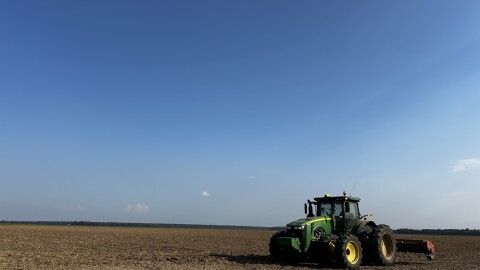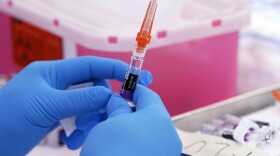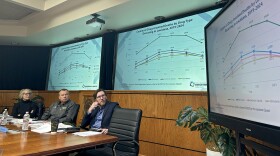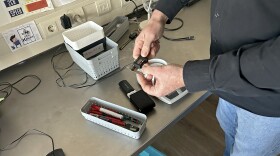-
Attorney General Liz Murrill has obtained an indictment for a California doctor who she alleges sent abortion pills to Louisiana in violation of state law.
-
On this week’s episode, we look at how expiring subsidies under the Affordable Care Act will impact people in the Gulf South.
-
An expert with the Louisiana Opioid Surveillance Program says that the decrease in deaths coincides with an increase in treatment and harm reduction.
-
Louisiana's surgeon general Dr. Ralph Abraham, who has praised Robert F. Kennedy Jr.'s tenure as health secretary and called COVID vaccines "dangerous," will become the second-highest ranking official at the CDC.
-
A new study published in Nature Communications looked at what happens when climate change and toxic pollution intersect.
-
The Clinic NOLA will offer many of the same services as the now-shuttered Planned Parenthood Gulf Coast.
-
On this week’s episode, we take a look at how drug checking services save lives in the Netherlands — and why there aren’t any in the Gulf South.
-
National Nurses United has been negotiating new staff contracts with UMC administrators since March 2024. This is the fifth strike in just over a year.
-
Undue Medical Debt partnered to pay off debts for more than 123,000 people across Orleans Parish. Now, the nonprofit warns that the issue could soon get worse.
-
Louisiana is suspending its temporary assistance program that would provide November funds to most Supplemental Nutrition Assistance Program (SNAP) recipients in the state amid the ongoing government shutdown.
-
A letter from Health Secretary Bruce Greenstein to staff at LDH states that employees will be furloughed without pay for up to 240 hours between November 3 and December 2.
-
After a whooping cough outbreak killed two infants, Louisiana health officials waited months to officially alert physicians or do public outreach. That's not the typical public health response.
-
A new Commonwealth Fund report paints a stark picture of how Medicare is serving older adults and people with disabilities in the Gulf South.
-
Louisiana Attorney General Liz Murrill filed a lawsuit this week that calls on the federal government to strike down rules that allow the distribution of abortion drugs without an in-person doctor’s visit.
-
Both the U.S. and the Netherlands wrestle with the politics of drug use, but their approaches diverge in key ways that reflect deeper ideological divides.
-
The nonprofit health care organization’s two clinics in the state shut down due to what Planned Parenthood Gulf Coast CEO Melaney Linton called “relentless political assaults.”
-
The study compiled complaints made to the New Orleans Health Department and found regular delays for various reasons in accessing misoprostol.
-
Unclear rules and inconsistent interpretations of federal and state COVID-19 vaccination rules leave families confused and vulnerable patients unprotected.
-
Another Louisiana resident has died from contracting flesh-eating bacteria, the state health department confirmed Tuesday.
-
The protest centered around the perception that Cassidy, a licensed physician, has not challenged Health and Human Services Secretary Robert F. Kennedy Jr. enough.
-
Republican lawmakers in Kentucky, Missouri and Texas introduced similar legislation to Louisiana's law that reclassified mifepristone and misoprostol as Schedule IV controlled substances.
-
So far this year, Louisiana recorded 368 cases of whooping cough, also called pertussis, as of August 23, according to provisional data from the Centers for Disease Control and Prevention.
























